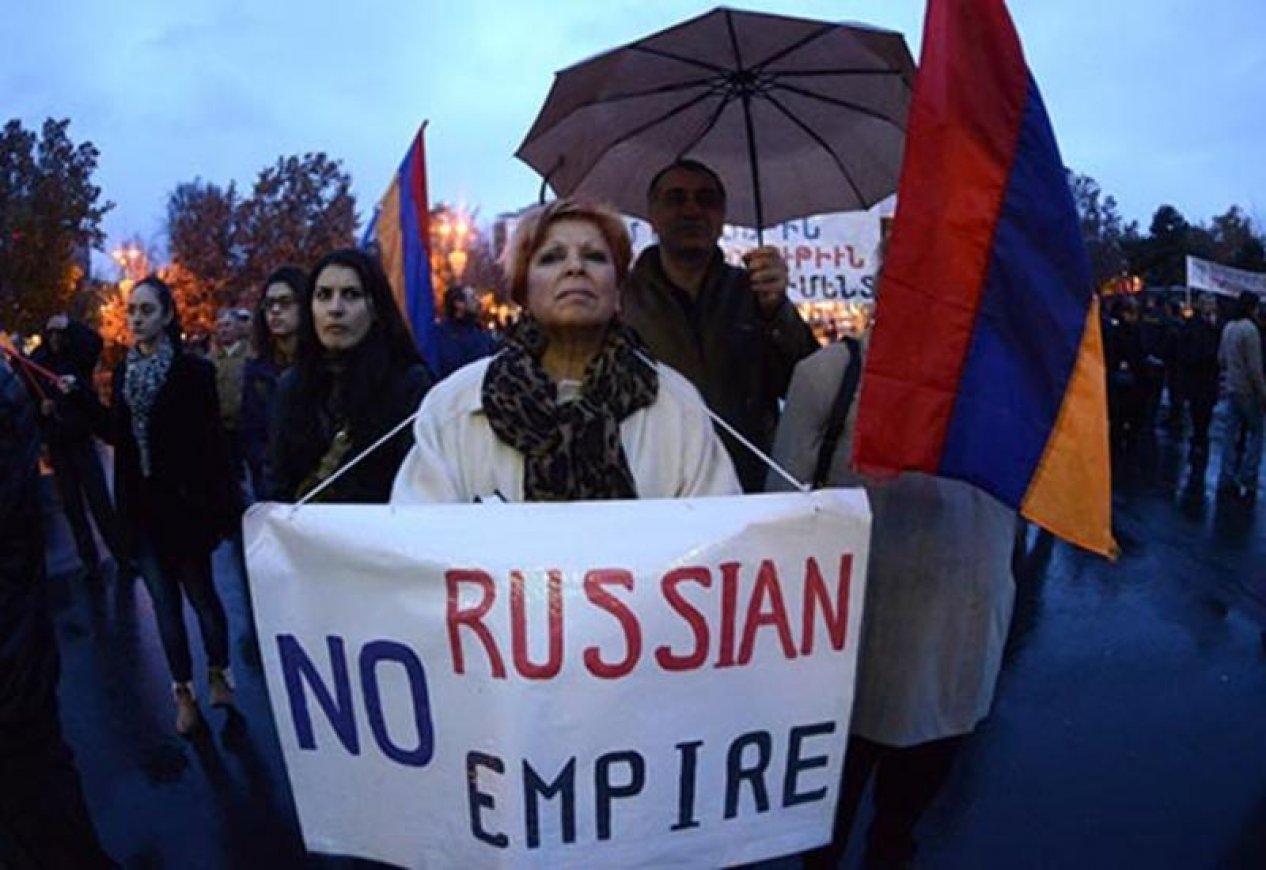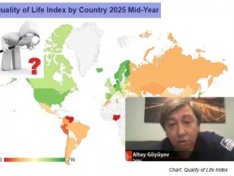
The Armenian lobby is conducting a large-scale international campaign, assuring that all the problems in Armenia are caused by Russia. Practically every month, rallies are held several times in the center of Yerevan, the main purpose of which is to warm up and strengthen anti-Russian sentiments among the population.
In the opinion of Russian experts, Armenia forgot to whom the country owes its appearance in the region, who opened the way for them to foreign lands. It is Russia that allows Armenia to somehow stay afloat and be considered as a geographical unit.
Faktyoxla Lab. has tried to figure out what arguments are being made in Armenia against Russia and how well they are substantiated.
The first argument is the total defeat in the Karabakh war.
Armenian society accuses Russia of its neutral position, which, based on international legal norms, it adhered to during the war: Moscow didn’t intervene in the war, didn’t help Armenia to maintain the occupation, Russia supports Baku’s initiatives and still dares to talk about the formats voiced by Ankara.
The Russian expert community is confident that Armenia was doomed to defeat in the Karabakh war for a number of factors, all of which existed long before September 27, 2020, when hostilities resumed.
First, on the international arena, Azerbaijan has secured almost allied relations with Turkey and positive relations with Russia, with the general neutrality of the West, despite the different voices in the US and France.
Secondly, Armenia has been consistently spoiling relations with Russia. Somewhere in 2002, Armenia began to build relations with NATO countries, develop military programs with them. Under Serzh Sargsyan, Yerevan pursued a defiant policy towards Moscow, in particular, under it an association agreement with the European Union was concluded, which even in a curtailed form undermined the Eurasian Economic Community. Distancing from Russia only accelerated during the period of Pashinyan’s tenure, when the game against the CSTO started under his rule.
Thirdly, in the opinion of Russian experts, the myth that the Armenian army ‘demonstrated miracles’ in the 1992-1994 war, which is capable of repeating this war alone, constantly dominated in the Armenian society. Because of this myth, Armenia quarreled with Russia, while not gaining allies in the West, and didn’t re-equip the troops, didn’t adapt to the conditions of the 21st century.
Fourth, in addition to accusations against Russia, attempts are being made to form an inferiority complex in Russians. Russians are being told that their power is controlled from Baku and Ankara. According to the calculations of the Armenian propagandists, these accusations should give Russians complexes and hatred towards Azerbaijan and Turkey and support the anti-Russian sentiment in the Armenian society itself.
Fifth, in Russia there is already little faith that in Armenia at least some part of the population is sympathetic to Russia. If there are any, then why don’t these people oppose anti-Russian sentiments? Why are there no alternative rallies with their participation? There are no such alternative rallies.
Отношение между русской общиной и титульной нацией в Азербайджане всегда были хорошими. Это в полной мере доказала вторая карабахская война, давшая нашему народу героев самых разных национальностей, в том числе русских.
Finally, the support of the Russian Orthodox Church of Azerbaijan for the actions of the Azerbaijani army during the 44-day war caused hysteria in Armenia. Thus, Konstantin Pominov, spokesperson for the Baku and Azerbaijan dioceses of the Russian Orthodox Church, has repeatedly made relevant statements. “Orthodox Christians are an integral part of the Azerbaijani people. We rejoice together, we worry together. The Constitution was written not only for Azerbaijanis, but for all citizens of this country. Azerbaijan is a secular democratic state, where the attitude towards different confessions and nationalities is very good. And it has always been that way, since ancient times. Azerbaijan is a very tolerant country. The fact that today there are prayers for peace and victory in churches of all confessions throughout Azerbaijan, speaks that we stand united. Muslims, Christians and Jews - we are all one people. We have different nationalities, different religions, but we all stand as one for our state, our Motherland,” said Archpriest Konstantin Pominov in an interview.
Can the same be said about Armenia? Unlikely.
The representative of the Russian Church further pointed out that it is the Armenians who are trying to present the conflict as that of Christian-Islamic nature. “If Azerbaijan fought against Christians, they would kill us first,” Pominov said.
Meanwhile, the Armenian side has repeatedly made attempts to use the Orthodox factor in order to quarrel Azerbaijanis with Russian citizens. In 2010, a scandal erupted around the laying of a Russian church in Khankendi without the consent of Baku. Bishop Alexander of Baku and the Caspian region expressed his disagreement with the Moscow Patriarchate in connection with the beginning of the construction of a church in Khankendi. Bishop Alexander also protested to the Baku office of the Russian Interfax news agency in connection with the report that he allegedly participated in laying the stone for the construction of the church.
The Russian community is the third largest (after Azerbaijanis and Lezgins) ethnic group in Azerbaijan and one of the biggest Russian diasporas outside of modern Russia. Currently, more than 120,000 Russians live in Azerbaijan.
The attitude towards the Russian language in Azerbaijan speaks volumes. Over the years of independence in Azerbaijan (unlike its neighbors in the South Caucasus), despite the reduction in the number of Russian classes, not a single Russian school has been closed, and parents can choose Russian as the main language for their children starting from grade 1. Leading universities teach in Russian in a number of specialties; Russian departments function in Azerbaijan.
The relationship between the Russian community and the titular nation in Azerbaijan has always been good. This was fully proved by the second Karabakh war, which gave heroes of various nationalities, including Russians, to the Azerbaijani people.




















